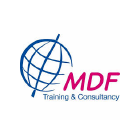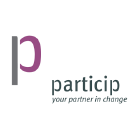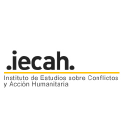WORKING WITH DG ECHO AS A UN AGENCY | 2014 - 2020
MONITORING AND EVALUATION
MONITORING
By signing the Delegation Agreement, the partner agrees to carry out the Action acting on its own responsibility and in accordance with the terms and conditions laid down in the Agreement, including the General Conditions.
Moreover, the partner is and remains fully responsible for all activities carried out by its Implementing Partners, the sub-delegatees and the contractors and shall ensure and guarantee an effective management and control of the whole Action. That is why monitoring has to be considered as a key activity in the action life cycle.
Monitoring includes the collection and analysis about the progress of a project and is primarily about comparing what was originally planned whit what actually happens. Furthermore, it is an important tool for improving the project efficiency and effectiveness in order to achieve a relevant impact and final project sustainability
Monitor means collect the data of the Action systematically and regularly. This collection should focus on different aspects such as:
-
physical progress of the activities (activities undertaken by the UN Agency and by its Implementing Partners and results delivered);
-
human resources (possible conflicts);
-
quality of process (e.g. stakeholder participation);
-
financial progress;
-
possible risks;
-
response by beneficiaries about the activities (i.e. use of services);
-
reasons for any adverse response by beneficiaries and any actions to be taken.
A good monitoring activity should provide clear information on the progress of activities and promptly identify challenges and possible areas for improvement.
The Logframe is an essential tool for developing a feasible monitoring plan and constitutes an important tool for the evaluation of the project’s effectiveness and impact at the end of the implementation period.
MONITORING AND THE SINGLE FORM
The monitoring mechanism used by the partner during the implementation of the Action should be described in the section 8 of the Single Form
EVALUATION
Both the UN Agency and ECHO can carry on an Evaluation of the Action.
EVALUATION BY THE UN AGENCY
To facilitate coordination between the partner and the Commission, where possible, the proposals shall outline the proposed evaluation plan of the relevant Action. Commission representatives shall be invited to participate in the main evaluation missions relating to the performance of the Action and the results of such missions shall be reported to the Commission.
The evaluations that the partner aims to carry on during the action have to be reported in the section 8.2 of the Single form
EVALUATION BY THE COMMISSION
The Commission may organise visits to project locations and offices in the context of its own evaluation of the Action, and as part of its regular monitoring. Evaluation and monitoring missions should be planned and completed in a collaborative manner, keeping in mind the commitment of the Parties to the effective and efficient operation of the Agreement and with due regard to the Commission's monitoring needs.
Evaluation missions by the Commission are to be planned by the parties that should agree in advance on procedural matters such as timing and scope of the mission, questions the mission wishes to raise with management of the organisation, nature of programme information, and whether missions are to visit headquarters locations and/or field offices. In doing so all staff involved should bear in mind their limited resources in terms of availability and capacity in handling these visits.
At the end of the Evaluation mission, the Commission shall offer to make a draft of its evaluation report available to the partner for comments prior to finalisation.





